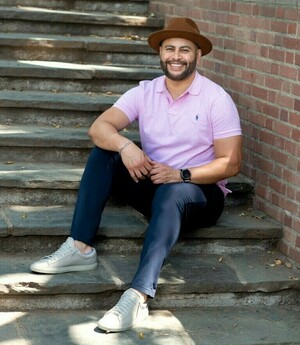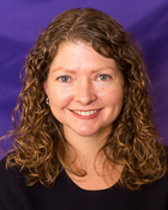Friday Aug 16, 2024
Workshop for untenured scholars
On Friday, August 16 at 12:00 noon, the Institute for Scholarship in the Liberal Arts…
Friday Aug 16, 2024
On Friday, August 16 at 12:00 noon, the Institute for Scholarship in the Liberal Arts…
Saturday Aug 24, 2024
Learn about the College of Arts and Letters' diverse array of majors and special programs during the Arts and Letters academic exploration session.
From 11:00 to noon, parents and families will hear from the dean of Arts & Letters and a panel
…Read More about Welcome Weekend: Arts and Letters Academic Exploration Session
Tuesday Aug 27, 2024
Welcome or welcome back!
Review the academic calendar of events.
Originally published at events.nd.edu.
Friday Aug 30, 2024

Efrén Pérez (Ph.D., Duke University) is Full Professor of Political Science and Psychology at UCLA, where he directs its Race, Ethnicity, Politics,…
Monday Sep 2, 2024
Administrative offices are closed for the national holiday, but classes are in session
Originally published…
Read More about Labor Day (offices closed, but classes are in session)
Friday Sep 13, 2024
With great joy, the University of Notre Dame's Board of Trustees announces the events celebrating the inauguration of Rev. Robert A. Dowd, C.S.C., as the University’s 18th president.
This list (https://president.nd.edu/inauguration-events/)…
Read More about Rev. Robert A. Dowd, C.S.C., Presidential Inauguration Events
Friday Sep 20, 2024
Speaker TBD
This is an academic research talk intended for Notre Dame faculty, staff, and grad students. This event will not be open to the public.
Originally published at rooneycenter.nd.edu.…
Friday Sep 27, 2024
2024 Election discussion. Details to follow.
Originally published at rooneycenter.nd.edu.
Friday Oct 4, 2024

David E. Lewis is the Rebecca Webb Wilson University Distinguished Professor in the Department of Political Science at Vanderbilt University. His…
Friday Oct 18, 2024

Laurel Harbridge-Yong is a Professor of Political Science and a Faculty Fellow at the Institute for Policy Research at Northwestern University. She…
Saturday Oct 19, 2024
Sunday Oct 20, 2024
Monday Oct 21, 2024
Tuesday Oct 22, 2024
Wednesday Oct 23, 2024
Thursday Oct 24, 2024
Friday Oct 25, 2024
Saturday Oct 26, 2024
Sunday Oct 27, 2024
Friday Nov 1, 2024
Speaker TBD
This is an academic research talk intended for Notre Dame faculty, staff, and grad students. This event will not be open to the public.
Originally published at rooneycenter.nd.edu.
Friday Nov 22, 2024
Speaker TBD
This is an academic research talk intended for Notre Dame faculty, staff, and grad students. This event will not be open to the public.
Originally published at rooneycenter.nd.edu.
Wednesday Nov 27, 2024
No classes Wednesday through Friday.
Administrative offices open on Wednesday, but closed Thursday and Friday.
Happy Thanksgiving!
Originally published at …
Thursday Nov 28, 2024
No classes Wednesday through Friday.
Administrative offices open on Wednesday, but closed Thursday and Friday.
Happy Thanksgiving!
Originally published at …
Friday Nov 29, 2024
No classes Wednesday through Friday.
Administrative offices open on Wednesday, but closed Thursday and Friday.
Happy Thanksgiving!
Originally published at …
Saturday Nov 30, 2024
No classes Wednesday through Friday.
Administrative offices open on Wednesday, but closed Thursday and Friday.
Happy Thanksgiving!
Originally published at …